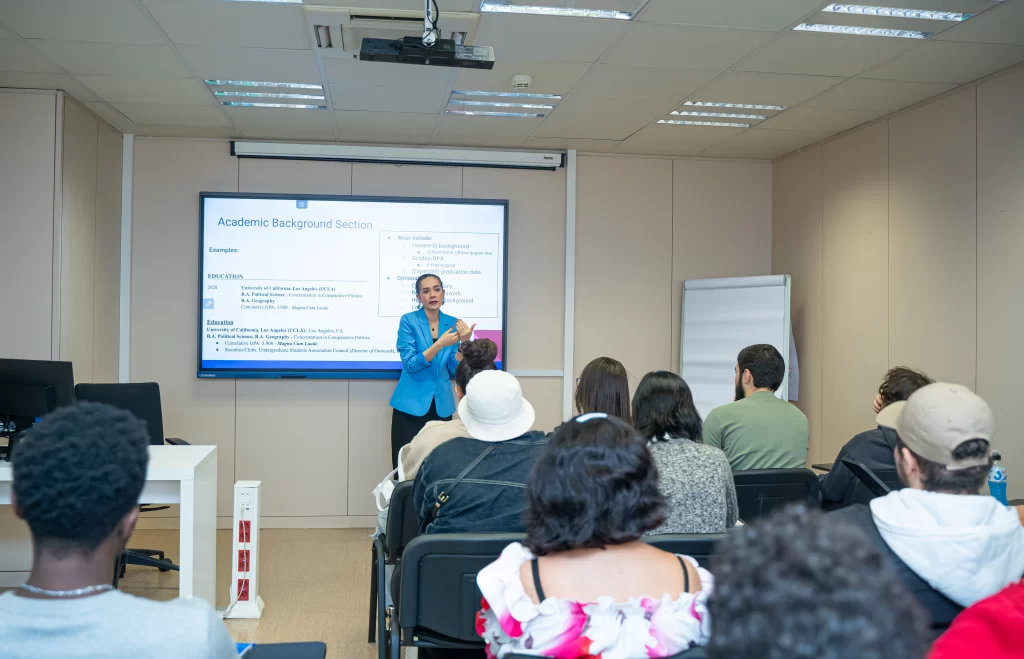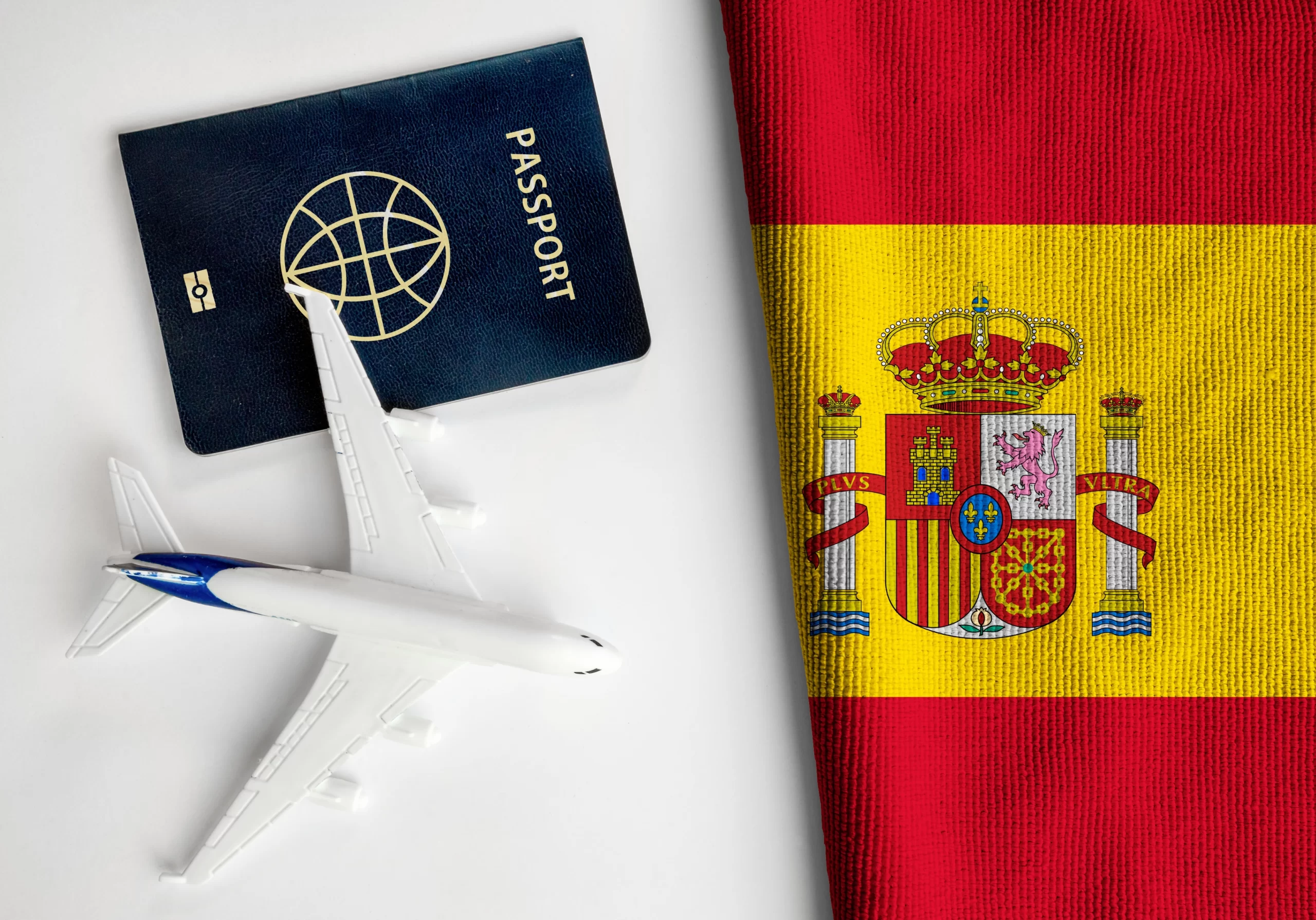Over the past few decades, Vietnam and Spain have built reasonably strong contacts, with a bilateral partnership focused mostly on trade that includes education, thus, immensely profiting universities and top business schools such as C3S Business School in Barcelona. Spain now imports a significant amount of goods from Vietnam, which has emerged as a leading location for manufacturing boosted by manpower supplied by universities and top business schools in Spain. Even though it is still modest, Spanish FDI in Vietnam has grown recently as Spanish businesses become more interested in the country’s industrial and chemical sectors in particular. Spain stands to gain from the comprehensive EU-Vietnam Free Trade Agreement (EVFTA), which went into effect in 2020, as a member of the EU. Through the elimination of tariffs and the provision of protections for geographical indications (GIs), the EVFTA may open up new export markets for Spanish goods.
Genesis of Trade Relations between Vietnam and Spain
In 1990, Vietnam established diplomatic ties with the European Union (EU), and in 1995, under the aegis of Spain’s chairmanship of the EU Council, a Cooperation Agreement was signed. In 1996, the European Parliament gave its ratification to this agreement, demonstrating support for Vietnam’s ASEAN integration and economic reforms. In 1977, following Vietnam’s reunification, Spain and Vietnam established diplomatic relations. 1994 witnessed the signing of a Joint Declaration to deepen friendship and expand exchanges in a variety of areas, including education, during the first official visit of a Vietnamese Minister of Foreign Affairs to Spain.
Both nations created diplomatic representations; as its first formal presence in Vietnam, Spain opened its Economic and Commercial Office in Ho Chi Minh City. With the 1997 appointment of Spain’s first resident ambassador to Vietnam, bilateral relations advanced. A few significant turning points have been the establishment of Vietnam’s Embassy in Madrid in 2002 and the Cervantes Classroom in Hanoi in 2001. Stronger links were established in 2006 when the King and Queen of Spain paid an official visit to Vietnam. Later that year, in 2009, during the state visit of then-President Nguyễn Minh Triết, a Joint Action Plan was signed, signifying a “strategic partnership” between the two nations. Vietnam recognised special bilateral relations after Spain became the first country in Europe to attain this status.
High-level interactions persisted, including meetings between heads of state and ministerial visits, as in 2017 and 2022. These exchanges show how Spain and Vietnam’s relations are still getting stronger with a focus on recruiting universities and top business schools in Spain, according to data from Spain’s Ministry of Economy, commerce and Enterprise (MINECO), bilateral commerce in products reached a total of €4.57 billion (US$4.85 billion) in 2022, up by about 29 percent year over year owing to the spike in student numbers in top business schools in Spain. Bilateral trade reached a total of €4.6 billion (US$4.88 billion) between January and November 2023, with an increase of only 6.4 percent year over year during this time accounting for an appreciable growth in student numbers accounting for enrolment in top business schools in Spain.
China+ strategy creates more opportunities for Vietnam and Spain in Education
The relocation of numerous multinational corporations as part of the larger China+ strategy—which involves companies moving manufacturing to nations with lower labour and operating costs, primarily in southeast Asia, of which Vietnam is a key destination—has contributed to the higher growth rate of Vietnam’s exports to Spain. The Vietnamese graduates from the best business schools in Spain provide a robust source of recruitment for running these enterprises. According to the Spanish Ministry of Foreign Affairs and Cooperation, pigments, medications, suits, radar devices, and food preparations were Spain’s top exports to Vietnam in terms of added value in 2022. In the meantime, ICT Trade Map data indicates that clothing, footwear, and electrical machinery and equipment were the top exports from Vietnam to Spain.
A bilateral investment treaty (BIT) between Spain and Vietnam was signed in 2006 and became operative in 2011. By guaranteeing legal security and protection for investors from both nations and promoting reciprocal economic cooperation, the Spain-Vietnam Bilateral Investment Treaty (BIT) creates an atmosphere that is favourable to investment. The agreement includes a number of important clauses. First and foremost, it guarantees investment protection from acts like expropriation, nationalisation, and unfair treatment. Second, the BIT creates dispute resolution procedures that give investors ways to resolve disagreements by arbitration, mediation, or negotiation. An investor-state dispute settlement (ISDS) clause is present in the BIT. Additionally, by providing investors with incentives, assurances, and support, BIT seeks to encourage investment flows. It preserves the nondiscrimination principles, guaranteeing that investors from one nation are treated equally and fairly in relation to others. Such an investment eco-system could never have been built without Vietnamese graduates from universities and top business schools in Spain, who are graduating in large numbers in bachelor’s and master’s programs in Spain.

Listening from Horses’ Mouth
‘’Education certainly finds its space here, in this growing trade relationship,’’ says Hiren Raval, CEO of C3S Business School, one of the top business schools in Spain, adding, ‘’the C3S Business School’s future academic collaboration and partnership certainly will like this to be defined under EVFTA’’.
There is currently a wide range of transnational education (TNE) choices available in Vietnam. Students do not need to pay for the expenses of living and going overseas to pursue outstanding international degrees. Significant and ongoing interest in TNE relationships with Vietnamese universities is being observed by foreign academic institutions. Not only are higher-ranking universities showing interest, but local universities are also showing interest in offering full in-country international degree programs. We see a lot of potential for educational institutions that can provide full in-country delivery through franchises, branch campuses, “campus within a campus” models, and other 4+0 arrangements.
Concurring with Raval, Dr. Francisco Rosique Gill, a senior visiting faculty at C3S Business School, one of the top business schools in Spain, affirms: ‘’Opportunities are abounding as C3S Business School under the remit of TNE can forge partnership with premium Vietnamese universities and business schools that can prove to be a transformative learning experience for the students.’’
Vietnam is a priority market for the UK, despite the UK lagging other Western destinations in terms of attracting Vietnamese to on-campus study. But the UK is performing well in terms of its TNE provision in Vietnam, with about 80 UK institutions enrolling over 5,000 Vietnamese students. Vietnam is the UK’s 10th largest country for TNE and the top growth market in Asia. ‘’This is where we see opportunity for C3S Business School which is running multiple UK awarding bodies’ programs which can be dispensed under the TNE provision by forming a meaningful partnership with premium institutions in Vietnam,’’ says Dr Aida Mehrad, head of academics at C3S Business School, one of the top business schools in Spain.
As the trade relationship between Spain and Vietnam has been firmly established TNE (Transnational Education) partnerships between Spanish and Vietnamese institutions have been commonplace. ‘’These collaborations are becoming increasingly significant as both countries look to expand educational collaboration and globalize their academic systems,’’ says Dr. Maria Fernanda Dugarte, dean and director of Institutional Affairs at C3S Business School, a top business school in Barcelona. ‘’These partnerships typically involve twinning and joint programs, immersion programs, research initiatives, student and faculty exchanges, and dual degrees that offer mutual benefits to both Spanish and Vietnamese institutions.’’
‘’Many Spanish universities and business schools like C3S Business Schools, a top business school in Spain, aim to collaborate with Vietnamese institutions to offer twinning programs, joint or dual-degree programs, where students can study partly in Vietnam and partly in Spain, earning degrees recognized in both countries,’’ says Prof Marc Sanso, the academic head of the Aspire Business School in Spain. ‘’ These programs often focus on high-demand fields like business administration, information technology, and tourism management.’’
Apart from C3S Business School in Barcelona (a top business school in Barcelona), another example is the TNE collaboration between Universitat Autònoma de Barcelona (UAB) and Vietnam National University (VNU). These institutions (including C3S Business School in Barcelona counted among the top business schools in Spain), collaborate on research projects related to environmental sustainability, renewable energy, and urban planning, with a focus on sustainable development in Southeast Asia. They offer joint PhD programs where Vietnamese students can benefit from UAB’s expertise while conducting field research in Vietnam.
‘’Exchange programs allow Vietnamese students to spend a semester or year in Spain, enhancing their global exposure while gaining academic credits transferable to their home institutions,’’ says Professor Fernando Lopez Oggier, an UCLA alumnus, who is currently teaching at C3S Business School, a top business school in Spain. ‘’Spanish students can also experience Vietnam’s unique culture and educational landscape.’’
Professor Emilio Guerra Sambrano of C3S Business School (a top business school in Barcelona) asserts, ‘’Faculty exchanges allow professors from both countries to share knowledge, conduct joint research, and enhance the curriculum through global perspectives.’’
Spanish institutions such as C3S Business School (a top business school in Barcelona), through TNE agreements, are increasingly seeking the opportunity to provide Vietnamese students with the opportunity to learn Spanish, adding a linguistic and cultural dimension to their education.
‘’These partnerships promote Vietnamese language and culture in Spain, enhancing mutual understanding and soft power relations,’’ affirms Professor Esther Comin of C3S Business School, ranked among the top business schools in Spain.
How TNE partnerships can live up to its Full Potential?
TNE partnerships enable research collaboration on pressing global issues such as climate change, sustainability, public health, and technology. Such a cause espoused by universities and top business schools in Spain. Vietnamese and Spanish researchers work together on joint projects, often funded by EU and ASEAN grants. Spanish institutions such as C3S Business School (a top business school of Barcelona) bring expertise in renewable energy, urban planning, and tourism, while Vietnamese institutions contribute knowledge of Southeast Asia’s economic and environmental challenges.
Many TNE programs — C3S Business School (ranked among the top business schools in Spain) and Aspire Business School have designed a slew of them — between Spain and Vietnam incorporating online and blended learning methods, especially in response to the COVID-19 pandemic. This allows students in bachelor’s and master’s programs in Spain to access international education without needing to relocate, expanding access to high-quality education in Vietnam.
Vietnamese students, both bachelor’s and master’s programs in Spain, who graduate under the remit of TNE programs receive internationally recognized qualifications (both master’s and bachelor’s programs in Spain), enhancing their employability and opportunities for further studies abroad. These institutions gain access to expertise both in bachelor’s and master’s programs in Spain, helping to improve academic quality, research output, and the international reputation of Vietnamese universities. Further, these partnerships foster greater cultural understanding, not only between the students and faculty in bachelor’s and master’s programs in Spain and Vietnam but also between the societies of Spain and Vietnam, contributing to stronger diplomatic and economic relations.
‘’Despite the huge benefits of TNE programs (for both bachelor’s and master’s programs in Spain and Vietnam), navigating the different educational regulations and accreditation systems of Vietnam and Spain can be complex, requiring thorough agreements between partner institutions due to regulatory differences,’’ points out Bela Raval, business head of C3S Business School. ‘’Although English is often used as the medium of instruction for both bachelor’s and master’s programs in Spain, language proficiency in Spanish or Vietnamese may still be a challenge for students and faculty, depending on the program,’’ she says.
‘’An essential first step towards the internationalization of higher education is the formation of TNE collaborations between Spanish and Vietnamese universities in the levels of bachelor’s and master’s programs in Spain,’’ avers Professor Mani Tahriri from C3S Business School. ‘’They not only improve students’ access to global opportunities and high-quality education, but they also strengthen diplomatic and cultural relations between the two nations.’’ As these alliances expand, they will probably have a significant impact on how scholars from Southeast Asia and Europe collaborate in the future.
Undoubtedly more and more institutions from North America and Europe such as C3S Business School, a top business school in Barcelona, are showing interest to establish or grow their collaborations with Vietnamese universities and business schools. One most important factor to take into account for these winds of change is EVFTA and many such arrangements. Compared to the past, these institutions are now far more interested in joint, dual degrees and twinning and immersion programs, and partnerships are now one of the emerging new routes for students to go from their home country to study abroad.



